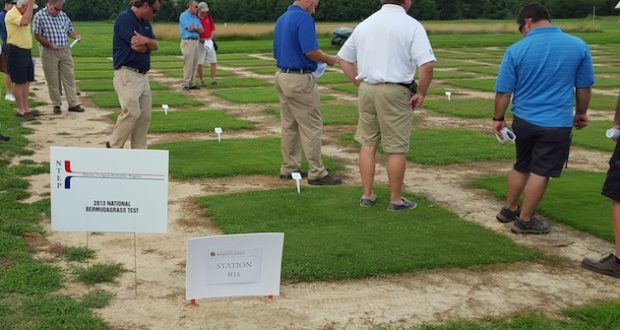At any one time, the National Turfgrass Evaluation Program (NTEP) is evaluating, in nationwide tests, more than 600 cultivars and experimental selection of more than a dozen species.
Data collected and summarized from these trials can be found on our website, www.ntep.org. Our data is also published on a CD, in the same format as the NTEP website, which can be purchased from NTEP.
NTEP collects data on overall turfgrass quality, appearance characteristics like color and texture, disease and cold tolerance and many other traits. In recent years, however, NTEP has focused more on testing specific performance traits, such as traffic tolerance and saline irrigation performance. This article provides insight on NTEP testing and an update on improved cultivars and new experimental selections of bermudagrass.
Testing procedures
NTEP trials are established at university locations and evaluated for 5 years. Species such as Kentucky bluegrass, perennial ryegrass and bermudagrass have been tested by NTEP for more than 25 years. Each new trial includes recently developed cultivars, experimental entries that may become commercialized, and well-known standard cultivars. With each trial, NTEP and an industry advisory committee develops testing protocols and identifies important characteristics to be evaluated. Trials are established at locations that are important use areas for that species, or where a disease, insect or other problem is prevalent, such that NTEP can adequately evaluate the test entries for that problem. Also, NTEP establishes tests where specific stresses can be evaluated, i.e., a location that can impose simulated traffic, saline irrigation or consistent drought stress.
Click Here To Read the Full Story in Sports Turf Magazine by Kevin Morris


